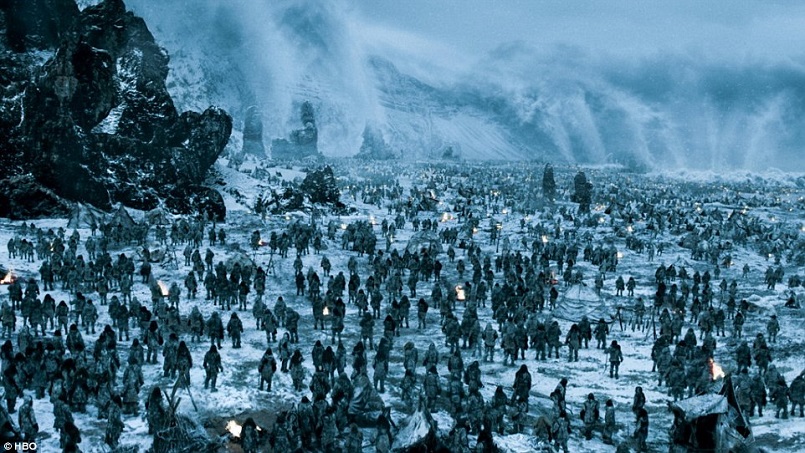
Imagine knowing a major Game of Thrones spoiler eight months before everyone else.
That was the reality for hundreds of staff at Australian visual effects firm Iloura, who were tasked with bringing to life a key battle scene in the latest season of the global phenomenon.
WARNING: IF YOU'RE NOT UP-TO-DATE ON GAME OF THRONES, THERE ARE SPOILERS AHEAD.
The epic scene in episode four, called The Loot Train, was brought to life by hundreds of staff over seven months.
They added fire, smoke, horses and people to hundreds of shots — though a different firm handled the dragons.
Visual effects (VFX) supervisor Glenn Melenhorst said it was time-consuming and sometimes tedious work.
"People who don't know our industry, they don't realise that a shot goes along a production line of different talents," he said.
"So there's people who only model objects in 3D and there's people who put texture and surfacing on them, or people who groom the hairs on the horses or people who build clothing and simulate clothing, and then there's people who actually animate and people who light.
"So one shot will come in and there'll be 20 or 30 steps before it's out the other side."
He said one of the toughest things to replicate was fire.
"Things like fire and water, any natural phenomena, take a lot of disc space to simulate and store but they also take a long time to calculate," Mr Melenhorst said.
"You don't just paint fire, you actually deal with fuel and vortices and heat and all those things.
"So they have to tweak all these settings and there can be thousands of these settings to get a certain type of fire and that can take two or three days sometimes."
Mr Melenhorst also said that given the show's trademark gore, his team had to do some gruesome research.
"A real hallmark of what we were doing was trying to show horses falling in ways that they wouldn't naturally, which felt more painful," he said.
"So you end up looking at a lot of YouTube clips of horrible accidents and steeple chase accidents and it's pretty grisly.
"We actually have to do some pretty grisly stuff in our job in order to study what's required for the nasty stuff. Wound research is never fun."
Last season the company was tasked with bringing to life the bloody Battle of the Bastards scene at the heart of the most expensive Game of Thrones episode ever.
Mr Melenhorst said it could be a burden to know key plot twists before anyone else.
"Knowing Jon Snow was alive eight months before anybody else did, you know, that's a burdensome thing to sort of carry with you," he said.
"But you know you have to and you can't tell anybody because you can't trust anybody not to have a lapse, so you just have to stay quiet on it."
All staff at Iloura had to sign hefty non-disclosure agreements and the company submits to regular security audits by the studios they work with.
VFX supervisor Josh Simmonds said it was an important part of being entrusted with such sensitive information.
"It's hugely controlled. A lot of our internet is completely locked down here," he said.
"And more often than not, we'll get given a script outline or a section of animation to give us an idea of what we're working with, but it's solely the section that we're working on so we don't necessarily understand the story arc."
Making it in America
Game of Thrones airs in 170 countries with a global audience of millions.
It has the enviable record for most Emmys ever won by a prime-time show and the unenviable title of the most pirated show ever.
Thanks to technology, the tyranny of distance hasn't held back the Australian visual effects firm.
Mr Simmonds said the show's directors do daily reviews of Iloura's progress, using programs to synchronise what both parties are watching on opposite sides of the world.
"We Skype with our clients daily but then there are people in LA who Skype with other people in LA because they can't be bothered with the traffic," he said.
Mr Melenhorst said working in the film and television industry no longer means moving to Hollywood.
"The film industry before the internet wasn't really viable in Melbourne, because data wasn't able to be transferred easily," he said.
"Since the advent of the internet and the ability to pipe information anywhere, it's made what was an essentially unachievable career achievable for us."
